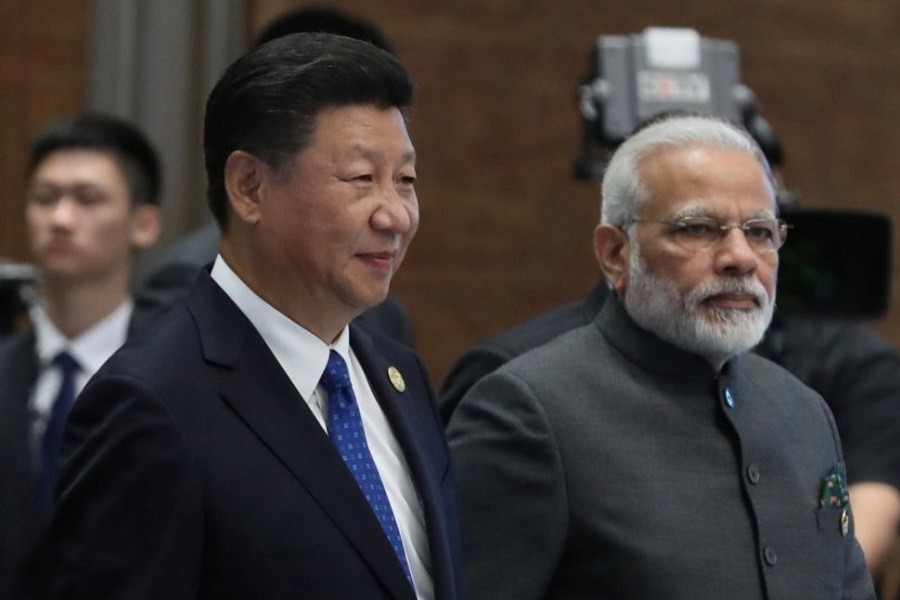India and China agreed to consult each other on regional and international issues, the Indian side said after a phone call on Tuesday between Chinese President Xi Jinping and Indian Prime Minister Narendra Modi.
Relations between the two countries have been tense since last year after their troops faced off on a disputed part of their border. On Tuesday Modi called Xi to congratulate him on his re-election.
“The two leaders agreed that as two major powers are growing rapidly, bilateral relations between India and China are vital for the realisation of 21st Century as ‘Asian Century’,” Modi’s office said in a statement.
Hundreds of troops were deployed in 2017 on the Doklam plateau, near the borders of India, its ally Bhutan, and China after New Delhi objected to Chinese construction of a road through the mountainous area in their most serious standoff in years.
China is willing to keep up the good momentum of two-way cooperation with India, Xi told Modi, China’s state news agency Xinhua said.
According to Reuters, China is ready to enhance communication with Modi on long-term, strategic bilateral issues to promote political mutual trust, Xi added.
China was also angered by Modi’s recent visit to Arunachal Pradesh, a state in northeast India claimed by China.
In a bid to improve ties with China, India banned Tibetans from hosting a rally with the Dalai Lama this month to mark the 60th anniversary of a failed uprising against Chinese rule. Beijing regards the Tibetan spiritual leader as a splittist.


